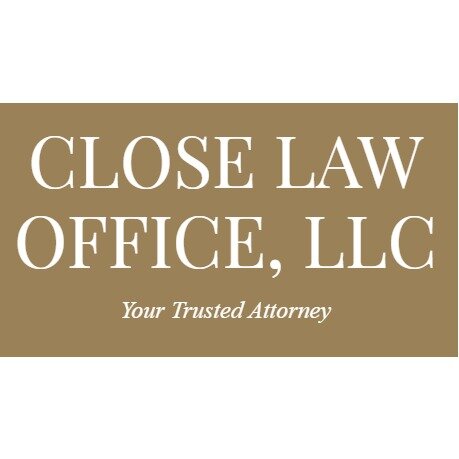Best Child Abuse Lawyers in Angola
Share your needs with us, get contacted by law firms.
Free. Takes 2 min.
Free Guide to Hiring a Family Lawyer
Or refine your search by selecting a city:
List of the best lawyers in Angola
About Child Abuse Law in Angola
In Angola, child abuse is a critical issue that the government addresses through a series of legal frameworks designed to protect children from harm. The country's legal system recognizes various forms of child abuse, including physical, emotional, and sexual abuse, as well as neglect. With a significant portion of the population comprising young individuals, Angola places a strong emphasis on safeguarding children's rights through comprehensive laws and policies.
Why You May Need a Lawyer
There are several situations where individuals may require legal assistance regarding child abuse. These include cases where there is a suspicion or evidence of a child being abused, instances involving wrongful accusations concerning child abuse, or when navigating the legal process to ensure the protection of a child's rights. Lawyers specializing in child abuse cases can provide guidance and representation to ensure all legal avenues are explored to protect the best interests of the child.
Local Laws Overview
The Angolan legal framework offers robust protection for children, primarily through the Child Law (Lei da Criança), which encompasses comprehensive rights for children. This law mandates that children must be protected from all forms of physical or mental violence, injury, abuse, neglect, and maltreatment. The Penal Code of Angola also includes stringent penalties for those found guilty of committing acts of child abuse. Additionally, the Angolan constitution enshrines the rights of the child, guaranteeing protection and support from both the family and the state.
Frequently Asked Questions
What constitutes child abuse under Angolan law?
Child abuse in Angola includes physical, emotional, and sexual harm or neglect inflicted upon a child, which adversely affects their well-being.
How can I report a case of child abuse?
Cases of child abuse can be reported to local police authorities, social services, or child protection organizations operating in Angola.
What protection is available for victims of child abuse?
The Angolan legal system offers various protective measures, including restraining orders, social services intervention, and, in severe cases, removing the child from an abusive environment.
Can I face legal consequences for not reporting child abuse?
Failure to report known child abuse can lead to legal consequences, as Angolan law requires individuals to report any suspected or observed abuse.
What kind of evidence is needed to prove child abuse in court?
Evidence can include medical reports, witness testimonies, photographs of injuries, and any documentation showing a pattern of abuse.
Are there legal services available for low-income families?
Yes, there are legal aid services and non-governmental organizations that provide support and representation for low-income families dealing with child abuse issues.
How long does a child abuse case typically take to resolve?
The time frame for resolving a child abuse case varies depending on the complexity of the case and the court’s schedule, but an attorney can help expedite the process by ensuring proper documentation and representation.
What are the possible penalties for a perpetrator of child abuse?
Penalties can range from fines and mandated rehabilitation programs to significant prison sentences, depending on the severity of the abuse.
Can child abuse cases be settled out of court?
While some elements, such as custody disputes, may be settled out of court, criminal charges related to child abuse generally require judicial proceedings to determine appropriate legal penalties.
Is counseling or psychological support available for affected children?
Yes, counseling services and psychological support are available through both governmental and non-governmental organizations aimed at helping children recover from abuse.
Additional Resources
Individuals seeking assistance can reach out to organizations such as UNICEF Angola, SOS Children's Villages Angola, and local child protection councils. The Ministry of Social Welfare is also a valuable governmental resource that offers various support services.
Next Steps
If you suspect or are dealing with a case of child abuse, it is crucial to seek legal counsel immediately. Contact a lawyer specializing in child abuse cases to discuss your situation and explore available legal options. Additionally, report the incident to appropriate authorities and ensure that the child receives the necessary care and support during the process.
Lawzana helps you find the best lawyers and law firms in Angola through a curated and pre-screened list of qualified legal professionals. Our platform offers rankings and detailed profiles of attorneys and law firms, allowing you to compare based on practice areas, including Child Abuse, experience, and client feedback.
Each profile includes a description of the firm's areas of practice, client reviews, team members and partners, year of establishment, spoken languages, office locations, contact information, social media presence, and any published articles or resources. Most firms on our platform speak English and are experienced in both local and international legal matters.
Get a quote from top-rated law firms in Angola — quickly, securely, and without unnecessary hassle.
Disclaimer:
The information provided on this page is for general informational purposes only and does not constitute legal advice. While we strive to ensure the accuracy and relevance of the content, legal information may change over time, and interpretations of the law can vary. You should always consult with a qualified legal professional for advice specific to your situation.
We disclaim all liability for actions taken or not taken based on the content of this page. If you believe any information is incorrect or outdated, please contact us, and we will review and update it where appropriate.
Browse child abuse law firms by city in Angola
Refine your search by selecting a city.














